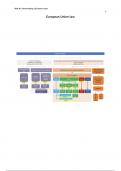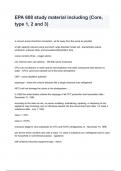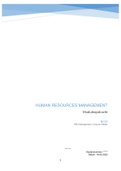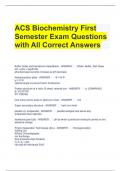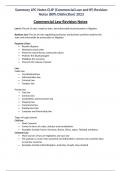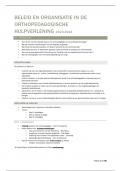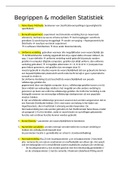Samenvatting
SAMENVATTING European Union Law, ALLE ARRESTEN EN LITERATUUR samengevat (Cijfer: 8)
- Instelling
- Erasmus Universiteit Rotterdam (EUR)
Alle leerdoelen van alle acht problemen + arresten uitgewerkt. Ook zijn de E-Lessons in de samenvatting verwerkt en tevens de hoorcolleges/webcasts. LET OP: Deze samenvatting omvat ook de literatuur die niet in de hoorcolleges/onderwijsgroepen zijn besproken, maar WEL tentamenstof waren (vandaa...
[Meer zien]
